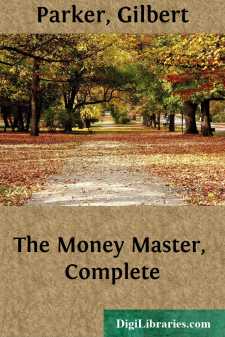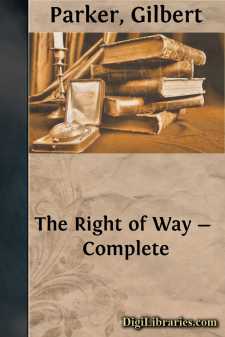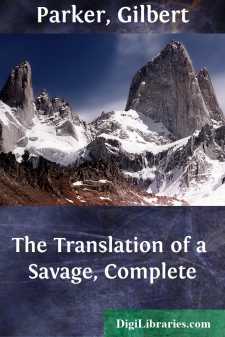Categories
- Antiques & Collectibles 13
- Architecture 36
- Art 48
- Bibles 22
- Biography & Autobiography 813
- Body, Mind & Spirit 142
- Business & Economics 28
- Children's Books 17
- Children's Fiction 14
- Computers 4
- Cooking 94
- Crafts & Hobbies 4
- Drama 346
- Education 46
- Family & Relationships 57
- Fiction 11829
- Games 19
- Gardening 17
- Health & Fitness 34
- History 1377
- House & Home 1
- Humor 147
- Juvenile Fiction 1873
- Juvenile Nonfiction 202
- Language Arts & Disciplines 88
- Law 16
- Literary Collections 686
- Literary Criticism 179
- Mathematics 13
- Medical 41
- Music 40
- Nature 179
- Non-Classifiable 1768
- Performing Arts 7
- Periodicals 1453
- Philosophy 64
- Photography 2
- Poetry 896
- Political Science 203
- Psychology 42
- Reference 154
- Religion 513
- Science 126
- Self-Help 84
- Social Science 81
- Sports & Recreation 34
- Study Aids 3
- Technology & Engineering 59
- Transportation 23
- Travel 463
- True Crime 29
Sort by:
by:
Gilbert Parker
CHAPTER I. "Why don't she come back, father?" The man shook his head, his hand fumbled with the wolfskin robe covering the child, and he made no reply. "She'd come if she knew I was hurted, wouldn't she?" The father nodded, and then turned restlessly toward the door, as though expecting some one. The look was troubled, and the pipe he held was not alight, though he made a...
more...
by:
Gilbert Parker
CHAPTER I The music throbbed in a voice of singular and delicate power; the air was resonant with melody, love and pain. The meanest Italian in the gallery far up beneath the ceiling, the most exalted of the land in the boxes and the stalls, leaned indulgently forward, to be swept by this sweet storm of song. They yielded themselves utterly to the power of the triumphant debutante who was making...
more...
by:
Gilbert Parker
CHAPTER I. THE RETURN OF MADELINETTE His Excellency the Governor—the English Governor of French Canada—was come to Pontiac, accompanied by a goodly retinue; by private secretary, military secretary, aide-de-camp, cabinet minister, and all that. He was making a tour of the Province, but it was obvious that he had gone out of his way to visit Pontiac, for there were disquieting rumours in the air...
more...
by:
Gilbert Parker
I "Ask Mr. Hume to come here for a moment, Gosse," said Field, the chief factor, as he turned from the frosty window of his office at Fort Providence, one of the Hudson's Bay Company's posts. The servant, or more properly, Orderly-Sergeant Gosse, late of the Scots Guards, departed on his errand, glancing curiously at his master's face as he did so. The chief factor, as he turned...
more...
by:
Gilbert Parker
CHAPTER I. THE GRAND TOUR OF JEAN JACQUES BARBILLE "Peace and plenty, peace and plenty"—that was the phrase M. Jean Jacques Barbille, miller and moneymaster, applied to his home-scene, when he was at the height of his career. Both winter and summer the place had a look of content and comfort, even a kind of opulence. There is nothing like a grove of pines to give a sense of warmth in winter...
more...
by:
Gilbert Parker
CHAPTER I You could not call the place a village, nor yet could it be called a town. Viewed from the bluff, on the English side of the river, it was a long stretch of small farmhouses—some painted red, with green shutters, some painted white, with red shutters—set upon long strips of land, green, yellow, and brown, as it chanced to be pasture land, fields of grain, or "plough-land." These...
more...
by:
Gilbert Parker
CHAPTER I. THE WAY TO THE VERDICT "Not guilty, your Honour!" A hundred atmospheres had seemed pressing down on the fretted people in the crowded court-room. As the discordant treble of the huge foreman of the jury squeaked over the mass of gaping humanity, which had twitched at skirts, drawn purposeless hands across prickling faces, and kept nervous legs at a gallop, the smothering weights of...
more...
by:
Gilbert Parker
INTRODUCTION TO THE IMPERIAL EDITION It was in the winter of 1892, when on a visit to French Canada, that I made up my mind I would write the volume which the public knows as 'The Seats of the Mighty,' but I did not begin the composition until early in 1894. It was finished by the beginning of February, 1895, and began to appear in 'The Atlantic Monthly' in March of that year. It...
more...
by:
Gilbert Parker
THE TRAIL OF THE SWORD This book, like Mrs. Falchion, was published in two volumes in January. That was in 1894. It appeared first serially in the Illustrated London News, for which paper, in effect, it was written, and it also appeared in a series of newspapers in the United States during the year 1893. This was a time when the historical novel was having its vogue. Mr. Stanley Weyman, Sir Arthur...
more...
by:
Gilbert Parker
CHAPTER I. HIS GREAT MISTAKE It appeared that Armour had made the great mistake of his life. When people came to know, they said that to have done it when sober had shown him possessed of a kind of maliciousness and cynicism almost pardonable, but to do it when tipsy proved him merely weak and foolish. But the fact is, he was less tipsy at the time than was imagined; and he could have answered to more...
more...











